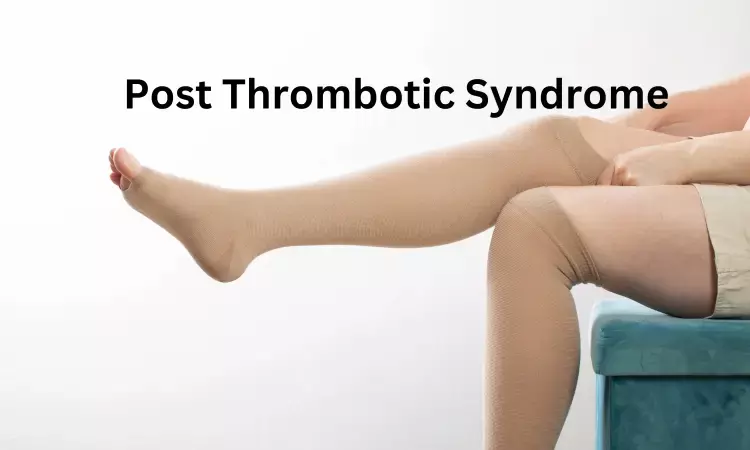- Home
- Medical news & Guidelines
- Anesthesiology
- Cardiology and CTVS
- Critical Care
- Dentistry
- Dermatology
- Diabetes and Endocrinology
- ENT
- Gastroenterology
- Medicine
- Nephrology
- Neurology
- Obstretics-Gynaecology
- Oncology
- Ophthalmology
- Orthopaedics
- Pediatrics-Neonatology
- Psychiatry
- Pulmonology
- Radiology
- Surgery
- Urology
- Laboratory Medicine
- Diet
- Nursing
- Paramedical
- Physiotherapy
- Health news
- Fact Check
- Bone Health Fact Check
- Brain Health Fact Check
- Cancer Related Fact Check
- Child Care Fact Check
- Dental and oral health fact check
- Diabetes and metabolic health fact check
- Diet and Nutrition Fact Check
- Eye and ENT Care Fact Check
- Fitness fact check
- Gut health fact check
- Heart health fact check
- Kidney health fact check
- Medical education fact check
- Men's health fact check
- Respiratory fact check
- Skin and hair care fact check
- Vaccine and Immunization fact check
- Women's health fact check
- AYUSH
- State News
- Andaman and Nicobar Islands
- Andhra Pradesh
- Arunachal Pradesh
- Assam
- Bihar
- Chandigarh
- Chattisgarh
- Dadra and Nagar Haveli
- Daman and Diu
- Delhi
- Goa
- Gujarat
- Haryana
- Himachal Pradesh
- Jammu & Kashmir
- Jharkhand
- Karnataka
- Kerala
- Ladakh
- Lakshadweep
- Madhya Pradesh
- Maharashtra
- Manipur
- Meghalaya
- Mizoram
- Nagaland
- Odisha
- Puducherry
- Punjab
- Rajasthan
- Sikkim
- Tamil Nadu
- Telangana
- Tripura
- Uttar Pradesh
- Uttrakhand
- West Bengal
- Medical Education
- Industry
Elastic Compression Stockings foundation therapy for reducing risk of post-thrombotic syndrome

The post-thrombotic syndrome (PTS) is a frequent, disabling complication of deep vein thrombosis (DVT) that reduces quality of life and is costly. PTS develops in 20% to 50% of patients with DVT, even when appropriate anticoagulant therapy is used to treat the DVT. Manifestations of PTS vary from mild clinical symptoms or signs to more severe manifestations such as chronic leg pain that limits activity and the ability to work, intractable edema, and leg ulcers.
Researchers assesed the effects of elastic compression stockings (ECS) and ECS's wearing time on post thrombotic syndrome after diagnosis of deep venous thrombosis. The study published in Thrombus research suggests that wearing ECS can help with the risk of developing PTS after DVT and a wearing time of less than or equal to 1 year is comparable to 2 years wearing.
A meta-analysis was conducted by Jiahao Meng and team, the researchers searched PubMed, Cochrane Library, Embase, Web of Science lastly upto 23 November 2022 for studies assessing effects of elastic compression stockings or theirs wearing time on post thrombotic syndrome after diagnosis of deep venous thrombosis.
The key findings of the study are
• A total of 9 randomized controlled trials were included. Wearing elastic compression stockings was associated with a statistically reduction in the overall post thrombotic syndrome rate (RR 0.73, 95 % CI 0.53 to 1.00; P = 0.05; I2 = 82 %).
• No significant difference in severe post thrombotic syndrome rate, recurrent deep venous thrombosis rate, and death rate was seen whether wearing elastic compression stockings or not.
• The pooled effect of studies comparing different wearing time of elastic compression stockings showed no significant difference in post thrombotic syndrome rate, severe and moderate post thrombotic syndrome rate, recurrent deep venous thrombosis syndrome rate and death rate.
Researchers concluded that Wearing ECS can reduce the risk of developing PTS after DVT and a wearing time of less than or equal to 1 year is comparable to 2 years wearing. The results support ECS's role as a foundation therapy for preventing PTS.
Reference: Meng J et al. Is it necessary to wear compression stockings and how long should they be worn for preventing post thrombotic syndrome? A meta-analysis of randomized controlled trials. Thromb Res 2023 May; 225:79. DOI: https://doi.org/10.1016/j.thromres.2023.03.016.
MSc. Neuroscience
Niveditha Subramani a MSc. Neuroscience (Faculty of Medicine) graduate from University of Madras, Chennai. Ambitious in Neuro research having worked in motor diseases and neuron apoptosis is interested in more of new upcoming research and their advancement in field of medicine. She has an engrossed skill towards writing and her roles at Medical dialogue include Sr. Content writer. Her news covers new discoveries and updates in field of medicine. She can be reached at editorial@medicaldialogues.in
Dr Kamal Kant Kohli-MBBS, DTCD- a chest specialist with more than 30 years of practice and a flair for writing clinical articles, Dr Kamal Kant Kohli joined Medical Dialogues as a Chief Editor of Medical News. Besides writing articles, as an editor, he proofreads and verifies all the medical content published on Medical Dialogues including those coming from journals, studies,medical conferences,guidelines etc. Email: drkohli@medicaldialogues.in. Contact no. 011-43720751


